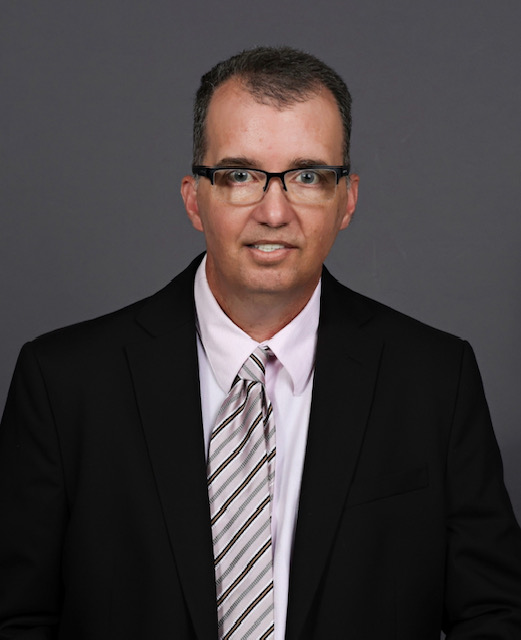An interview with Gerry Hill on a Parkinson’s Point of View on October 17, 2023 by George Ackerman, Ph.D, J.D.
Please tell me a little about your background.
I was diagnosed with Parkinson’s in October 2016 at the age of 48. It was classified then as early-onset Parkinson’s Disease. My doctor said I was one of the younger patients he had treated, but not the youngest overall.
I am a high school English teacher outside of Atlanta, GA. I am currently in my 28th year of teaching and I am 55 years old. I am originally from Birmingham, AL. I am married (for 33 years) to my wife, Becky, and I have twin daughters (age 23) who are in graduate school at this point.
Can you tell me more about your advocacy?
My advocacy falls into two main categories. First, I was a member of a local Parkinson’s support group at a church where I previously attended. That was a special time as it came about right after my diagnosis. The group was made up of men in their 70’s who were battling PD as well. I learned a lot from them, but I would like to think I made a few contributions of my own to the group.
My second area of advocacy comes through my book that I published about two years ago. It is entitled: Parkinson’s: Life Lessons Five Years into the Journey. It is in no way a best-seller, but a few hundred copies have been sold and it is currently available on Amazon. This book, while therapeutic for me to write, also serves as my main advocacy channel.
What is your passion and how did you get involved in Parkinson’s awareness and hope for a cure?
My passion is trying to aid other organizations that support PD Research. I’ve spent time and money supporting the Michael J. Fox Foundation through participating in racing events and doing other fundraisers for the Foundation. I knew I wanted to get involved with this after reading both of Fox’s books and seeing his vision for a cure for PD. I would really love to find a way to get my book linked with that Foundation’s website.
What type of goals do individuals with Parkinson’s have when seeing your advocacy?
I have seen several individuals make the decision to join an event for MJFF or other research partners after meeting them during my biggest fundraising event for the MJFF, a streak of 76 consecutive weekends running a 5k race. I called it “Running for a Reason” and (with others help) raised over $1,000 for research for a cure for PD. I would also like to think that my book has inspired more people to find out more about PD and how to help find a cure.
What type of training and how long are the programs?
I am not involved in training for advocacy purposes.
What effect can your advocacy have on an individual with Parkinson’s?
I hope that my advocacy and actions can help other early-onset Parkinson patients see that a more normal existence is possible even with PD attacking you on a daily basis.
What would you like to see as a future goal for your advocacy?
With my current situation, I would be quite happy with maintaining my current level of advocacy and maintaining my levels of participation in PD research events. I would also love to increase my own knowledge of how to become a better advocate for PD research and the search for a cure.
What events do you participate in?
I have done several MJFF 5k races and created/managed a couple of cornhole tournaments in my neighborhood to raise money for research.
How does your advocacy also assist caregivers?
I hope that my writing inspires the caregivers of other PD patients. In my book, I describe the value of my own wife’s care for me as a patient. I hope other caregivers can see that they are not alone in the struggles of helping someone with this disease. In my early advocate days, the church support group I was in had the caregivers/spouses attend the sessions.
How can someone get in touch? What is your website?
Email me at grh826@gmail.com
If you had one final statement or quote you could leave for the Parkinson’s community, what would it be?
After being diagnosed with PD, I can honestly say that I have learned a lot ABOUT Parkinson’s, but I have learned MORE FROM Parkinson’s.

